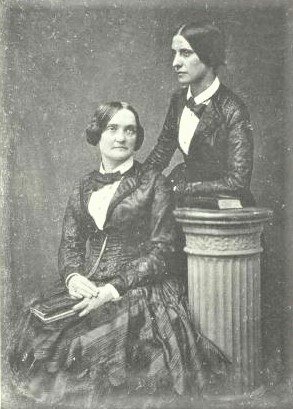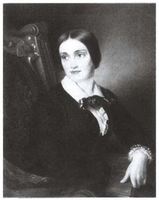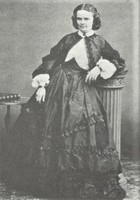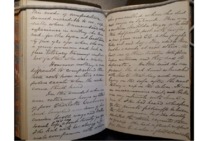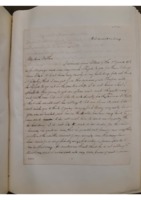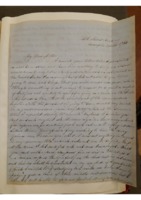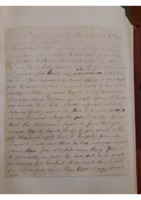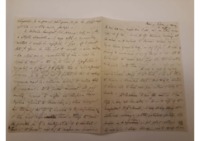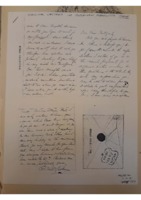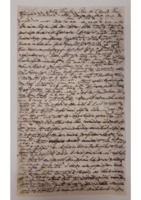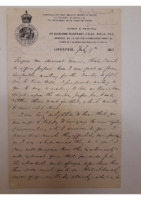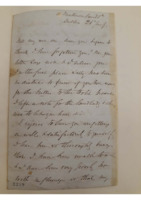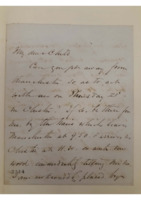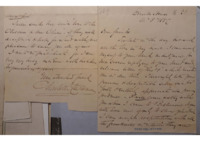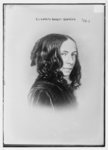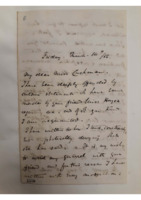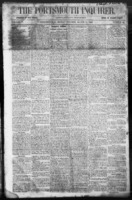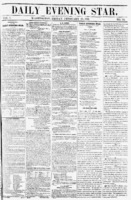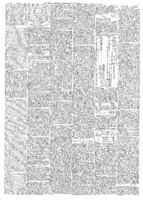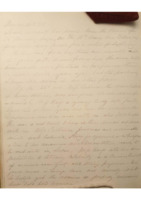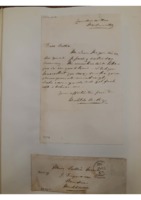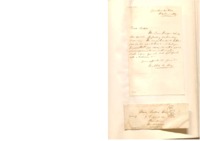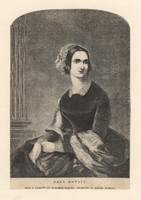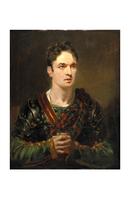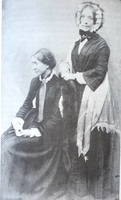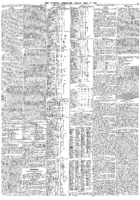Dublin Core
Title
Matilda Hays
Subject
Hays, Matilda Mary, 1820-1897
Actors and Actresses
Actors and Actresses--English
Journalists/Writers
Description
Matilda Hays and Cushman meet "[s]ometime, probably after 1846" (Merrill 156). Hays plays the Juliet to Cushman’s Romeo in 1848, when Cushman's sister Susan plans to marry James Sheridan Muspratt.
Hays is in a relationship with Charlotte Cushman in the 1850s until a passionate breakup in 1857. In 1851, she dedicates her translation of George Sand's Fadette to Charlotte Cushman ("To Charlotte Cushman, true artist, and yet truer woman, the translation of this beautiful little tale is inscribed, in affectionate remembrance of our travels in the country honored by her birth."). Hays is an admirer and translator of French novelist George Sand who is "the epitome of the passionate, independent nineteenth-century woman: a believer in free love who dressed in male attire and lived as she pleased with whomever she chose" (Merrill 157).
Hays is a British journalist and author, she is fighting for the rights of women. For a short time in 1848/1849, she performs on stage with Cushman due to financial concerns.
In London, Hays and Cushman live at 1 Bolton Row, Piccadilly, and face the cholera epidemic.
In October 1853, Hays leaves Charlotte Cushman in England to live with Harriet Hosmer in Rome before returning to Cushman. Charlotte's family is not particularly fond of Hays, as can be inferred from personal correspondence, such as between Ned and his mother Susan. After Cushman and Hays's breakup, Hays leaves Rome in April 1857. After the emotional breakup between Cushman and Hays, Matilda becomes one of the founders of the English Women's Journal.
Hays is in a relationship with Charlotte Cushman in the 1850s until a passionate breakup in 1857. In 1851, she dedicates her translation of George Sand's Fadette to Charlotte Cushman ("To Charlotte Cushman, true artist, and yet truer woman, the translation of this beautiful little tale is inscribed, in affectionate remembrance of our travels in the country honored by her birth."). Hays is an admirer and translator of French novelist George Sand who is "the epitome of the passionate, independent nineteenth-century woman: a believer in free love who dressed in male attire and lived as she pleased with whomever she chose" (Merrill 157).
Hays is a British journalist and author, she is fighting for the rights of women. For a short time in 1848/1849, she performs on stage with Cushman due to financial concerns.
In London, Hays and Cushman live at 1 Bolton Row, Piccadilly, and face the cholera epidemic.
In October 1853, Hays leaves Charlotte Cushman in England to live with Harriet Hosmer in Rome before returning to Cushman. Charlotte's family is not particularly fond of Hays, as can be inferred from personal correspondence, such as between Ned and his mother Susan. After Cushman and Hays's breakup, Hays leaves Rome in April 1857. After the emotional breakup between Cushman and Hays, Matilda becomes one of the founders of the English Women's Journal.
Type
Person
Reference
Person Item Type Metadata
Birth Date
1820-09-08
Birthplace
London, UK
Death Date
1897-07-03
Occupation
journalist
writer
actress
editor
Secondary Texts: Comments
"It is not certain how Charlotte Cushman and Matilda Hays first met. They were both acquainted with other members of Laurence's Bayswater circle, and they had numerous close friends in common, including Mary Howitt, Geraldine Jewsbury, Eliza Meteyard, and William Charles Macready. Even Eliza Cook and Matilda Hays knew each other. Sometime, probably after 1846, Charlotte Cushman's and Matilda Hays's paths crossed. Matilda Hays was already a novelist and journalist determined to use her writing to improve the condition of women." (Merrill 156)
"It may have been through the Ashurst family that Charlotte Cushman and Matilda Hays were first acquainted. The Ashursts' Muswell Hill home was often a meeting place for radicals and reformers where the leading thinkers, writers, and political activists of the day socialized. At the time the Ashursts were also devoted friends of the Howitts and well acquainted with Geraldine Jewsbury, who came down from Manchester for long visits and stayed with them in London." (Merrill 158)
"In a female ménage, some ill will had been inevitable perhaps, yet pondering the matter, Charlotte recognized in herself a feeling she had not expected in paradise. In her heart, she knew she was utterly bored. Did that explain Matilda's sad eyes? Perhaps-but before long Charlotte realized something more disturbing. Her resentment flaring she asked herself how Matilda and the willful Hattie could have dated to form an attachment between themselves that included no place for her. How could they so lightly dismiss her friendship? Worse still, how could they so coldly discount the generosity she had brought them in open hands? [...] [Charlotte Cushman] knew she must leave Rome, yet to do so would force a showdown with Matilda and forfeit, perhaps, a bond she had long valued. Between a husband and wife, a marriage contract made many things easier, but between herself and Matilda what ties still held? Without explaining, she simply announced one night that she had decided to return to the stage." (Leach 258)
"It may have been through the Ashurst family that Charlotte Cushman and Matilda Hays were first acquainted. The Ashursts' Muswell Hill home was often a meeting place for radicals and reformers where the leading thinkers, writers, and political activists of the day socialized. At the time the Ashursts were also devoted friends of the Howitts and well acquainted with Geraldine Jewsbury, who came down from Manchester for long visits and stayed with them in London." (Merrill 158)
"In a female ménage, some ill will had been inevitable perhaps, yet pondering the matter, Charlotte recognized in herself a feeling she had not expected in paradise. In her heart, she knew she was utterly bored. Did that explain Matilda's sad eyes? Perhaps-but before long Charlotte realized something more disturbing. Her resentment flaring she asked herself how Matilda and the willful Hattie could have dated to form an attachment between themselves that included no place for her. How could they so lightly dismiss her friendship? Worse still, how could they so coldly discount the generosity she had brought them in open hands? [...] [Charlotte Cushman] knew she must leave Rome, yet to do so would force a showdown with Matilda and forfeit, perhaps, a bond she had long valued. Between a husband and wife, a marriage contract made many things easier, but between herself and Matilda what ties still held? Without explaining, she simply announced one night that she had decided to return to the stage." (Leach 258)
Social Bookmarking
Collection
Citation
“Matilda Hays,” Archival Gossip Collection, accessed October 22, 2024, https://www.archivalgossip.com/collection/items/show/3.


